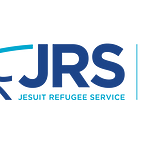Supporting caregivers to support others | JRS Health program
Jesuit Refugee Service (JRS), South Africa, health program, supports caregivers to support others. This program currently supports 150 caregivers through support groups and training which provide them with skills and knowledge on how to care for their family members living with a chronic or terminal illness. We spoke with Yuarli and Helene who are beneficiaries of the caregiver's program.
Following the death of her husband in political violence in the Democratic Republic of Congo (DRC) in 2006, Yuarli* fled and arrived in South Africa with her two young children. Shortly after arriving in South Africa, her son began to get sick.
They sought medical treatment and found out that he was HIV positive, Yuarli tested and was also positive. They both began receiving treatment. The family's socio-economic situation at the time was difficult, and access to food to take anti-retroviral treatment was becoming difficult. The nurse at the clinic referred Yuarli to JRS for assistance in 2008. Yuarli began attending a support group in 2008 with, a JRS community health care worker, known affectionately as, Mama Sangara. Yuarli continues to attend today. The support group is a source of support and learning for her.
I didn't know anything about this sickness. I had so much stress and was sick. I did not imagine arriving at this day. I would just sit in the house and think to much about, why me? But now, if I follow the medication, eat meals I will be good. Mama Sangara taught us all this
Despite the continued stigma around having and living with HIV/AIDS, Yuarli feels that her experience and the knowledge she has gained help her in supporting other people. Yuarli sells sweets on the corner of the street in her neighborhood to make an income. She has sold in the same spot for many years and the community has come to know her well and call her ‘aunty’. The community knows when she goes to the clinic and she knows when others have gone to the clinic. She explained that:
My community knows my status and they feel safe to disclose theirs. People in the community come and sit with me by my shop. They come for advice and I can tell them what to eat and how to be healthy, like me. The support group taught me that I can survive this thing. It gave me the strength to be a mother to others.
Helene is a refugee from the DRC and arrived in South Africa in 2008. She currently lives in Johannesburg with her husband and four children. Helene’s son has sickle cell anemia and her husband has epilepsy. Helene has been assisted by JRS’ health program for a number of years.
Helene explained that when she first heard about her son’s and husband's diagnosis she did not know how to care for them. Helene explained that at JRS:
Mama Sangara has provided support and counseling on how to manage the problems I face and how to care for my family. Mama Sangara has been doing this every month for many years.
Helene also attends a caregivers support group and shared some of the benefits of being a part of this group:
You get more courage from sharing with with other people, it also gives you a release for emotions. You see other people and feel less alone
The Gauteng Department of Health released a policy in 2020 which reclassified foreign patients as private paying patients. This has had exacting consequences on many households that have family members with chronic illnesses. Helene elaborated:
Before, at hospitals it was much better. From March 2020 they were charinging us a lot. We pay R400.00 every month to see the doctor and my 12 year old son has an big outstanding amount at the hospital because of all the laboratory and blood tests we have to do. It’s difficult because if you don’t pay, they [health care staff] won’t attend to my son.
JRS supports beneficiaries under the health program with financial assistance towards transport and consultation fee’s being charged at public hospitals. However, the available funding and increasing fees being implemented in public health facilities are fast becoming untenable. JRS in coalition with other civil society organizations is in the process of developing advocacy initiatives in response to this policy and its compounding impact on beneficiaries. Continue to follow JRS's social media pages for updates on this.
